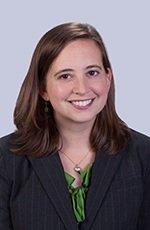Oct 10, 2016

October is Breast Cancer Awareness Month. Today, about 1 of 8 women in the United States is unfortunately expected to be diagnosed with breast cancer in her lifetime. Throughout October, members of the Rochester Regional Health Breast Care team will provide information in our monthly Q&A series to help you take a few important steps that can significantly improve your odds of enjoying a lifetime of good health. Today, Dr. Robin Reid discusses risk factors.
Q: What causes breast cancer?
A: While the exact causes of breast cancer are unknown, factors shown to increase risk include:
- Getting older. The risk for breast cancer increases with age; most breast cancers are diagnosed after age 50.
Early menstrual period. Women who start their periods before age 12 are exposed to hormones longer, raising the risk for breast cancer by a small amount. - Late or no pregnancy. Having the first pregnancy after age 30 and never having a full-term pregnancy can raise breast cancer risk.
- Starting menopause after age 55. Like starting one’s period early, being exposed to estrogen hormones for a longer time later in life also raises the risk of breast cancer.
- Not being physically active. Women who are not physically active have a higher risk of getting breast cancer.
- Being overweight or obese after menopause. Older women who are overweight or obese have a higher risk of getting breast cancer than those at a normal weight.
- Having dense breasts. Dense breasts have more connective tissue than fatty tissue, which can sometimes make it hard to see tumors on a mammogram. Women with dense breasts are more likely to get breast cancer.
- Using combination hormone therapy. Taking hormones to replace missing estrogen and progesterone in menopause for more than five years raises the risk for breast cancer. The hormones that have been shown to increase risk are estrogen and progestin when taken together.
- Taking oral contraceptives (birth control pills). Certain forms of oral contraceptive pills have been found to raise breast cancer risk.
- Personal history/family history of breast cancer. Women who have had breast cancer are more likely to get breast cancer a second time. In addition, a woman’s risk is higher if there is a family history of breast cancer
- Personal history of certain non-cancerous breast diseases. Some non-cancerous breast diseases such as atypical hyperplasia or lobular carcinoma in situ are associated with a higher risk of getting breast cancer.
- Previous treatment using radiation therapy. Women who had radiation therapy to the chest or breasts (like for treatment of Hodgkin’s lymphoma) before age 30 have a higher risk of getting breast cancer later in life.
- Drinking alcohol. Studies show that a woman’s risk for breast cancer increases with the more alcohol she drinks.
All of these factors have independently been associated with increased risk for breast cancer, but it is important to note that many are not modifiable (family history, timing of menopause, etc).
The Rochester General Health Breast Center is one of the highest volume breast centers in New York State and is a Center of Excellence in cancer care. Our goals are to: Provide patient focused state-of-the-art comprehensive and coordinated multidisciplinary care in a compassionate and supportive environment, maintain excellence through supporting oncology clinical research, and serve as a community resource for referring and treating physicians as well as patients and their families.

